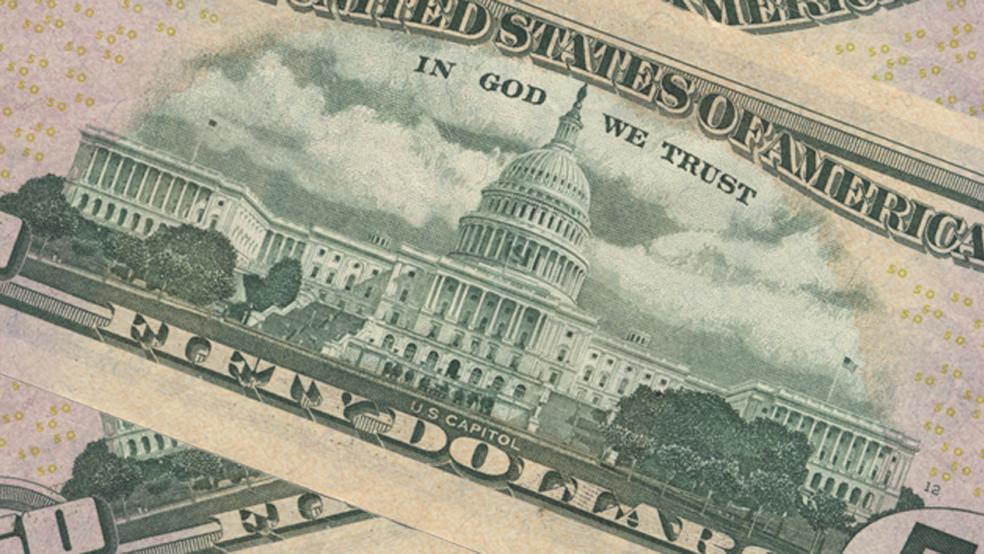Largely lost among the ironies and absurdities of the latest budgetary machinations in D.C. is this nugget: The members of Congress who might fail to fund a host of federal operations past the end of the month would still get paid if the government shuts down. Even as they demonstrate their continued dysfunction, the lawmakers are among those federal employees who are officially considered essential – or to use the gentler jargon that’s been in place since 1995, they are “excepted.”
“Due to their constitutional responsibilities and a permanent appropriation for congressional pay, Members of Congress are not subject to furlough,” a recent report by the Congressional Research Service explains.
That makes sense, at least on some level. Congress would, after all, have to pass legislation to end any shutdown and get furloughed federal workers back on the job. Yet even if some 1.2 million federal workers have to stay home, the legislators who effectively sent them there – the same members of Congress who so often struggle to enact legislation on anything more substantive than naming post offices – would still get their paychecks. They might face political pressure to avoid a government shutdown or end one quickly, but they have no money of their own directly at stake in avoiding a shutdown. Remember that thing your mom said about life not being fair? Add this example to the list.
RELATED: WHY IT’S STILL NOT ‘COOL’ TO BE A FEDERAL WORKER
Other federal workers, meanwhile – employees who have no say in whether the government stays open or not – would at least have to wait to get paid. The last time the federal government shut down, about 800,000 federal employees got furloughed for five days between November 13 and November 19, 1995. The following month, after a short-term stopgap spending measure expired, some 284,000 employees were furloughed and another 475,000 continued to work without pay between December 15, 1995 and January 6, 1996. “Federal employees who have been furloughed under a shutdown historically have received their salaries retroactively,” the Congressional Research Service report notes “However, there appears to be no guarantee that employees placed on shutdown furlough would receive such pay.”
Would the dysfunction be any different if Congress had some skin in the game?
“We won’t know until we try,” says William Galston, a senior fellow at the left-leaning Brookings Institution who served as a policy advisor to President Bill Clinton. Galston is a co-founder of the group No Labels, which encourages bipartisan cooperation and originally proposed the idea of a “No Budget, No Pay” law – legislation to require Congress to pass its annual budget by Oct. 1 or lose their pay until the appropriations process is completed.
“We have to do something in this highly polarized situation to change the incentives, and if somebody can come up with a better idea than ‘No Budget, No Pay,’ fine,” says Galston. “I’m of the view that there ought to be as much symmetry as possible between members of Congress and their constituents, so for example if government workers are furloughed, why shouldn’t members of Congress experience the financial equivalent to that furlough, share the pain they’re imposing on everybody else.”
Rank-and-file members of Congress now get paid $174,000 a year. The Speaker of the House gets $223,500, while the president pro tempore of the Senate and the majority and minority leaders in both houses make $193,400. Including relatively lavish benefits compared to those most Americans get, congressional compensation now totals $286,000 a year, according to a recent report by the conservative Taxpayers Protection Alliance.
That's a fairly high salary, at least by the standards of most Americans – it's 3.4 times what the average full-time U.S. employee makes, according to the taxpayers group’s report. (The report noted that if Congressional salaries were cut to $100,000 a year, taxpayers would save $39 million a year.) Chances are, though, that at least some other members privately agree with Rep. Phil Gingrey (R-GA), who lamented recently that his staff could eventually go off and get highly lucrative lobbying jobs while he is “stuck here making $172,000.” Gingrey got lambasted for that comment – whining about that pay level is unseemly, and the congressman is certainly free to abandon his current run for the Senate and head down the well-worn path to K Street himself if he wants – yet there’s more than a kernel of truth it. Members of Congress make less than lobbyists or D.C. professionals.
On the other hand, many in Congress are wealthy enough that their level of pay might not make much difference – and losing their paycheck for the duration of a shutdown might not be all that painful. The median net worth of the 112th Congress was more than $440,000, according to Roll Call.
Skeptics also suggest that stopping Congressional pay might not outweigh political factors, including the fear of facing a primary challenge that could cost them their job. “It might for a few members,” says Norman Ornstein, resident scholar at the conservative American Enterprise Institute and a harsh critic of Congressional gridlock, “but the people who are angling to get a shutdown are driven by an ideological fervor that I think is largely immune to that kind of incentive, or disincentive.”






